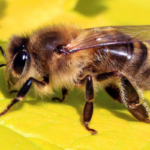Plastic waste is one of the most pressing environmental issues of our time. As the world grapples with this challenge, scientists and researchers have been innovating and finding surprising new ways to repurpose and recycle plastic waste. Here are ten groundbreaking uses that highlight the potential to transform what was once considered waste into valuable resources.
1. Road Construction
One of the most promising applications of plastic waste is in road construction. Researchers have developed techniques to incorporate plastic waste into asphalt, creating more durable and resilient roads. These plastic-infused roads not only reduce the amount of waste in landfills but also improve road quality by enhancing resistance to weather and wear.
2. Eco-Bricks
Eco-bricks are a simple yet effective solution where plastic bottles are stuffed tightly with non-recyclable plastic waste. These bricks are then used in construction, particularly in low-cost housing projects. This method not only provides a building material but also helps manage plastic waste in regions lacking recycling facilities.
3. Fuel Production
Through a process called pyrolysis, scientists can convert plastic waste into fuel. This method involves heating plastic in the absence of oxygen, breaking it down into liquid fuel that can be used in place of conventional fossil fuels. This not only helps reduce plastic waste but also offers an alternative energy source.
4. 3D Printing Filament
Plastic waste can be recycled into filament for 3D printing. This not only reduces the need for new plastic production but also opens up opportunities for creating a wide range of products, from prosthetics to home goods, using recycled materials.
5. Building Materials
Innovators have developed ways to transform plastic waste into various building materials, such as tiles, bricks, and lumber. These materials are not only durable and weather-resistant but also provide a sustainable alternative to traditional construction materials.
6. Textiles
Plastic waste, particularly PET bottles, can be recycled into polyester fibers. These fibers are used to make clothing, upholstery, and other textile products. This approach not only reduces plastic waste but also lessens the environmental impact of textile production.
7. Carbon Nanotubes
Scientists have found that certain plastic wastes can be converted into carbon nanotubes, a material with incredible strength and electrical conductivity. These nanotubes have applications in electronics, medicine, and advanced materials, showcasing a high-tech use for otherwise discarded plastics.
8. Agricultural Mulch
Plastic waste is being repurposed into mulch films used in agriculture. These films help conserve soil moisture, reduce weed growth, and enhance crop yield. Using recycled plastics in agriculture not only manages waste but also supports sustainable farming practices.
9. Marine Barriers
Plastic waste has been used to create floating barriers that prevent additional plastic from entering the ocean. These barriers are part of larger cleanup efforts to tackle marine plastic pollution and protect marine ecosystems.
10. Energy Storage
Researchers are exploring ways to use plastic waste in the development of batteries and supercapacitors. By converting plastic into carbon-based materials, scientists aim to improve the performance and sustainability of energy storage systems.



GIPHY App Key not set. Please check settings